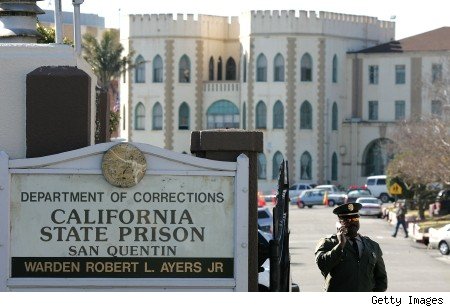 Commentary: Awhile back, after Richard Hirschfield was convicted of killing two young UC Davis students over 30 years ago, someone suggested that we focus on honoring the victims.
Commentary: Awhile back, after Richard Hirschfield was convicted of killing two young UC Davis students over 30 years ago, someone suggested that we focus on honoring the victims.
As Bob Dunning wrote last weekend in his column, “Not only did he take the lives of two of Davis’ finest, he also sentenced their parents and siblings and extended families to a lifetime of agony that simply never ends. He wounded the soul of this town and shook us to our core, and those of us who lived here then will never forget that horrible time.”
Yesterday, at the culmination of the separate penalty phase of the trial, the jury predictably handed down the ultimate penalty – death. Of course, this was largely predictable as soon as the trial started. There was no reasonable chance that this jury – handpicked for their views on the death penalty – would hand down anything other than death.
The unfortunate thing is that the current inexplicable public policy decisions make it impossible to focus on the victims. What we have is a multi-level farce and everyone knows it.
First, given Mr. Hirschfield’s age and the state of California’s death penalty system, he will never be executed by the state – I know it, you know it, the American people know it.
Even the prosecutor, as we reported earlier this week, acknowledged it to the victim.
In a recent Daily Democrat article on the case, they quoted the father of one of the victims on this very issue.
“Dr. Richard Riggins, father of John Riggins, said, “We were told from the start by the district attorney that we’d never see him executed by the death penalty, but his activities will be severely limited if he gets the death penalty. It’s not the same as being imprisoned without the possibility of parole. That’s why we’re seeking the death penalty – we want to limit his activities as much as possible in prison.”
Think about how much more money this kind of case costs – we have two defense attorneys, we have extra expenses for expert witnesses and investigation, and we have the guilt and penalty phase.
That does not even include the money for the automatic appeals with a state-funded appellate attorney, or the added cost for single-room occupancy and extra security.
The Vanguard has made requests to Yolo County for the costs of the Marco Topete death penalty trial and awaits the results of that inquiry. But the estimation by some is that that case will cost more than $1 million more than a standard murder trial.
For all of the arguments about the plea agreement – what was Mr. Hirschfield’s incentive to do anything other than pound and pray, hoping that the jury would maybe find him not guilty or maybe spare him? What was his incentive to take a plea? He too knew that he would die of natural causes in prison no matter what.
There is a second problem here – the process itself is almost assured of leading to a death verdict in a case like this where guilt is not in doubt and the crime is horrific and senseless.
Part of the problem is the way we select death penalty juries – through a death-qualification process, which eliminates jurors who have the potential to question the death penalty.
As Natasha Minsker, Death Penalty Expert from the ACLU, who helped lead the Prop 34 effort, told us last year, the death-qualification process creates a juror more likely to convict and more likely to agree to choose the death penalty.
She told the Vanguard, “Research shows that our prejudiced ‘qualification’ process produces juries that are more likely to convict. Prospective jurors who make the cut to serve are more likely to believe prosecution witnesses and less likely to ask probing questions.”
“But it’s not just that all the people with moral qualms about the death penalty have been removed from the jury,” Ms. Minsker said. “The prospective jurors left after death qualification are more likely to view evidence as ‘aggravating,’ meaning it supports sentencing the person to death, and less likely to view the same evidence as ‘mitigating,’ meaning it supports imposing a sentence of life without possibility of parole instead.”
She added, “Death-qualified jurors view the facts and the evidence differently than do the jurors excluded from serving, differently in a way that favors the prosecution across the board.”
So, removed from the jury is anyone with any kind of ambiguity about the death penalty process. By doing that, you virtually ensure that in the worst cases – and clearly both Richard Hirschfield and Marco Topete are among the worst cases – the death penalty will be agreed to.
What disturbs me most here is that everyone understands that Mr. Hirschfield is never going to be executed – everyone except perhaps for the jury.
So we are going through this expensive charade- for what? A symbol? Because death row is somewhat worse in one person’s subjective view than the SHU (Secure Housing Unit) at Pelican Bay?
As we wrote earlier this week, a lot of people do not think that is accurate. But even if it is, does it possibly justify the cost?
If the belief is that somehow death row is more limiting, then perhaps we can find other answers that are less costly. Perhaps we can create the ultimate crime status for the worst of the worst. That way the jury can feel better that they duly punished the Richard Hirschfields of the world more than the standard murderer, while we end the farce that is the death penalty.
Listen again to the voices of people who used to support the death penalty.
Don Heller wrote the law in 1977.
“When I wrote it, I was absolutely certain beyond any doubt that what I was writing was morally right, was constitutionally sound, and would bring justice to people that deserved to be executed for heinous homicides,” Mr. Heller said. “I’ve gone from certainty to change.”
He cited “empirical evidence that the death penalty was not working as intended” as his impetus for changing his views. “It doesn’t work and it costs a fortune,” he added.
Mr. Heller noted that, under the law, we have only executed 13 people at the cost of over $330 million per execution. “We are causing huge expenditures of money for no reason,” he said.
“The process takes years. I never thought it would take that long for an execution. I never thought it would take that much money,” he added.
So why are we doing this? Did we bring back those young kids from 30 years ago? Do we feel better about ourselves? Did we honor the victims?
To me this is a big distraction from celebrating the life of the victims and protecting them. This is about anger, hatred, vengeance, and someone’s political career.
There is no justice here. Nothing we do can bring back the lives of these young kids.
—David M. Greenwald reporting





I was recently having a related conversation with rdcanning about optimal placement of a different murderer within the prison/mental health system. It seems there is a conflict about whether this individual should be confined in prison or in the state mental health facility.
With each side, corrections and the hospital arguing its own perspective, what seems to be being ignored is the most fundamental question of all.
“what positive good for the victims, for the innocent family members ( both of the victim and of the perpetrator) and for society as a whole will be obtained by the proposed action? It seems to me that the action resulting in the most positive outcome should be the one selected.
Too often, I agree with David that the decision being made is based on anger, hatred, vengeance, career building, and I would add fear rather than on any consideration of the most positive outcome.
The proponents of prop 34 have no one to blame but themselves. They tried to pull a fast one on Californians. They could have held an honest campaign to end the death penalty but the chose to hide the abolishment of the death penalty under the wool of fiscal responsibility.
When you have the ACLU, lawyers, and liberals running around calling for fiscal responsibility it starts to smell like a sardine cannery. If the ACLU and the liberals had been honest by admitted to being the cause if the high costs of the death penalty and the reason murderers are not being executed they may have had a chance.
Prop 34 would have passed if it had been middle ground. If could have tightened evidence requirements, given the victims more say or changed the process.
[quote]There was no reasonable chance that this jury – handpicked for their views on the death penalty – would hand down anything other than death. [/quote]
Here is the DUH statement of the day. Of course a death penalty jury is handpicked based on it’s view of the death penalty. You have to be willing to follow the law and if you would not impose the death penalty under any circumstance you are not qualified to serve on the jury. You say handpicked as if there is something nefarious going on. What criminal case jury is not handpicked?
It’s without doubt that Prop 34 was nefarious, handing $100 million to law enforcement from the general fund, depriving death row inmates of their state paid attorneys but not saying so, pretending that the cost of the death penalty was their motivation. Prosecutors would no longer have to be concerned with their “prosecutorial misconduct”, there would no longer have been appeals on that basis.
Prop. 34 was presented to the state by the former warden of San Quentin and it was promoted by law enforcement. The ACLU and other groups supported it because they oppose the death penalty,
but it appeared that many supporters did not look beyond the idea of stopping the death penalty. They did not look at the many problems inherent in adopting Prop 34, problems set up by the former warden and her allies.
As to families having a “lifetime of agony”, that would be a very poor choice for family members to make. Better to celebrate their loved ones’ hopes and ideals and move forward constructively. And,
it’s always good to remember that we all die someday, one way or another, whether we are very young or old, by accident, illness, or someone’s bad act, negligent or otherwise.
Si in a typical trial a juror is supposed to be unbiased but in a death penalty trial a juror actually has to show bias to be chosen. Seems like another aspect of the legal system that needs to be overhauled.
Another reason that DA’s like Death Penalty cases, and this is commonly talked about in the DA’s office when deciding to charge, is you get a better jury in a death penalty case. This flaw is exploited since the DA knows he gets to ask questions about death penalty.
Since more conservative people believe and support the death penalty, by picking a jury for a death penalty case, you get a more conservative jury.
I have personally heard DA Jeff Reisig make comments about at least with a Death Penalty jury the pu**y liberals have to show themselves. I am sure if Reisig could pick a death penalty jury for every case he would. To me that is unethical, to him it is doing his job and since the crook gets a Def Attorney, it does not matter, that is what appeals are for.
Inside tricks of the trade, all DA’s know this is true, know it happens, yet anyone that would admit it would be run out as a traitor for crossing that secret blue line. People need to realize, for this DA’s office and maybe many others, winning is number one above all else.
[quote]Si in a typical trial a juror is supposed to be unbiased but in a death penalty trial a juror actually has to show bias to be chosen.[/quote]
Wrong. A death penalty juror doesn’t have to be biased, just willing to enforce the laws. Even in a non death penalty case a potential juror that believes imprisonment is unjustified under any circumstance is not qualified to be a juror.
The problem is that you automatically eliminate the thirty to forty percent most liberal people so you end up with a pool more conservative, more likely to convict, and more likely to impose the dp. That’s not theoretical, studies have borne this out.
The system is imperfect but do you think it is reasonable to have someone against the death penalty under any circumstance in the pool of death penalty jurors? They are incapable of following the law. I don’t see how that can make sense.